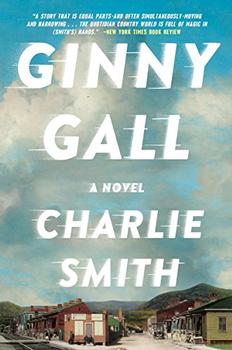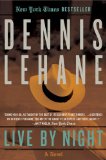Summary | Excerpt | Reading Guide | Reviews | Beyond the book | Read-Alikes | Genres & Themes | Author Bio

Charity Girl examines one of the darkest periods in our history, when patriotic fervor and fear led to devastating consequences. During World War I, the U.S. government went on a moral and medical campaign, quarantining and incarcerating young women who were thought to have venereal diseases. They were called “charity girls”
Charity Girl examines one of the darkest periods in our history, when patriotic fervor and fear led to devastating consequences. During World War I, the U.S. government went on a moral and medical campaign, quarantining and incarcerating young women who were thought to have venereal diseases. Most were called “charity girls,” or working-class girls who happened to have had relationships with infected men. Through the eyes of one fictional charity girl, this novel explores an astonishing time.
Frieda Mintz, a Jewish seventeen-year-old bundle wrapper at Jordan Marsh in Boston, spends one impulsive night with an infected soldier. Soon after, she is tracked down and sent to a makeshift detention center, where she is subject to invasive physical exams, poor living conditions, and a creeping erosion of all she thought she knew about herself. Buoying her, though, is a cast of women as strong as they are diverse, and they soon teach one another about dependence, and eventually independence.
Charity Girl lays bare an ugly part of our past, when the government exercised a questionable level of authority at the expense of its citizens’ rights. The book casts long shadows and explores the most important, urgent questions of desire, freedom, and identity.
The particular moment in history that Lowenthal explores will be news to most, but the tale of governments overruling the rights of those without the influence to defend themselves is familiar .... Of course, this is all in the past, something like this couldn't happen in America today, could it?..continued
Full Review
(1144 words)
This review is available to non-members for a limited time. For full access,
become a member today.
(Reviewed by BookBrowse Review Team).
Michael Lowenthal is the author of
the novels Charity Girl (2007), Avoidance (2002)
and The Same Embrace (1998). His
short stories have appeared in Tin House, the Southern Review,
the Kenyon Review, and Witness, and have been widely anthologized. Three of
his stories have received "Special Mention" in Pushcart Prize anthologies. He
has also written nonfiction for the New York Times Magazine, Boston
Magazine, the Washington Post, the Boston Globe, Out,
and many other publications.
Before becoming a full-time writer, he worked as an editor for
University Press of New England, where he founded the Hardscrabble Books
imprint, publishing such authors as Chris Bohjalian, W.D. Wetherell, and Ernest
Hebert. He studied ...
This "beyond the book" feature is available to non-members for a limited time. Join today for full access.

If you liked Charity Girl, try these:

by Charlie Smith
Published 2017
A sweeping, eerily resonant epic of race and violence in the Jim Crow South: a lyrical and emotionally devastating masterpiece from Charlie Smith, whom the New York Public Library has said "may be America's most bewitching stylist alive."

by Dennis Lehane
Published 2013
Live by Night is a riveting epic layered with a diverse cast of loyal friends and callous enemies, tough rumrunners and sultry femmes fatales, Bible-quoting evangelists and cruel Klansmen, all battling for survival and their piece of the American dream.
Anagrams
Click Here to find out who said this, as well as discovering other famous literary quotes!